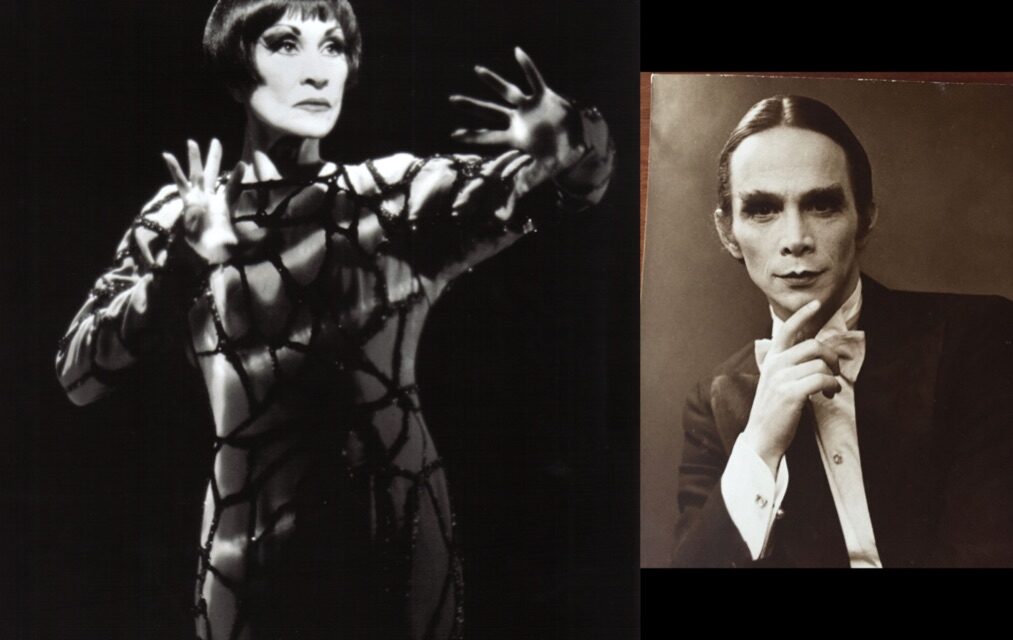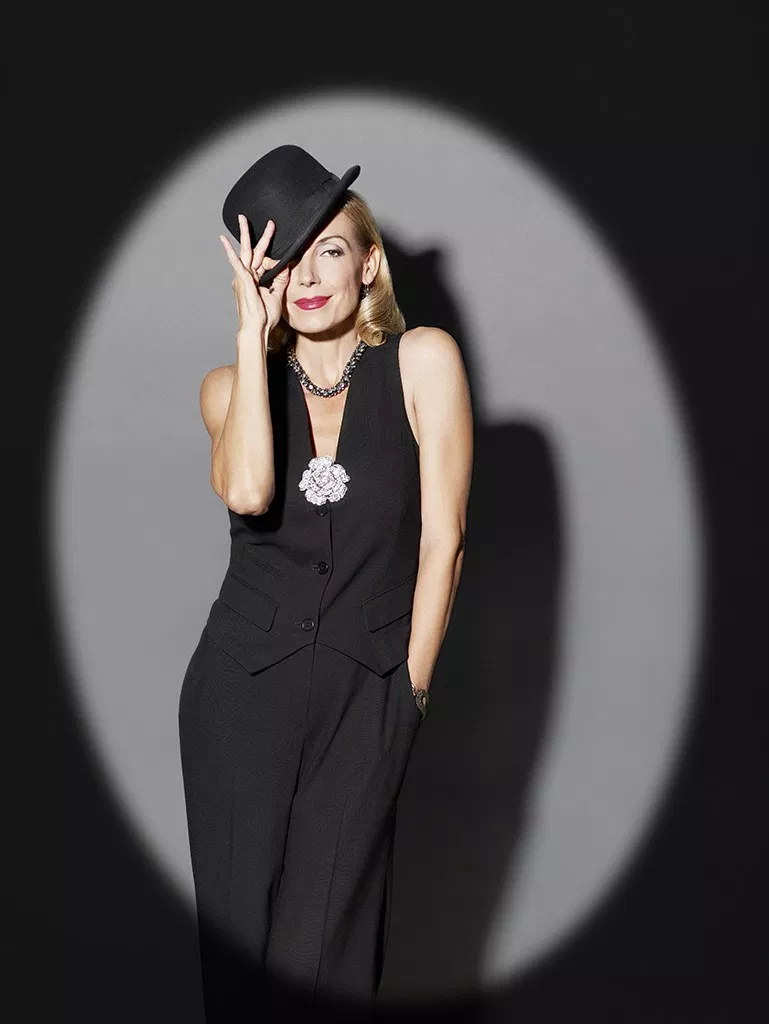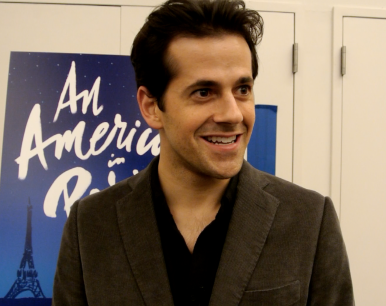By Harry Haun . . .
Chita Rivera and Joel Grey are unique among theater legends. Each earned a Tony without a single line of dialogue. Their characters existed only in the songs of John Kander and Fred Ebb—Rivera as the recurring film fantasy of an imprisoned South American gay in Kiss of the Spider Woman, Grey as the sleazy emcee of the Kit-Kat Klub in 1931 Berlin in Cabaret.
Friends for years, they somehow have never worked together—although earlier this month they appeared on the same Town Hall bill at the Irish Rep gala, saluting their personal favorite producer-director, Harold Prince, and this week Grey received a Lifetime Achievement Award at the 4th Annual Chita Rivera Awards at NYU Skirball Center for the Performing Arts.
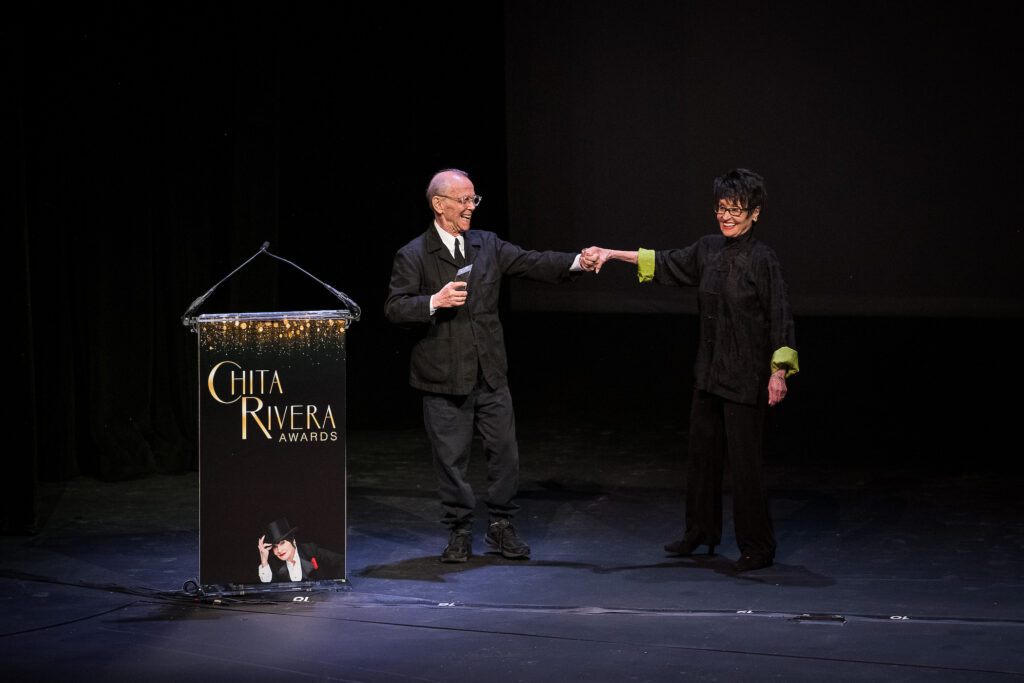
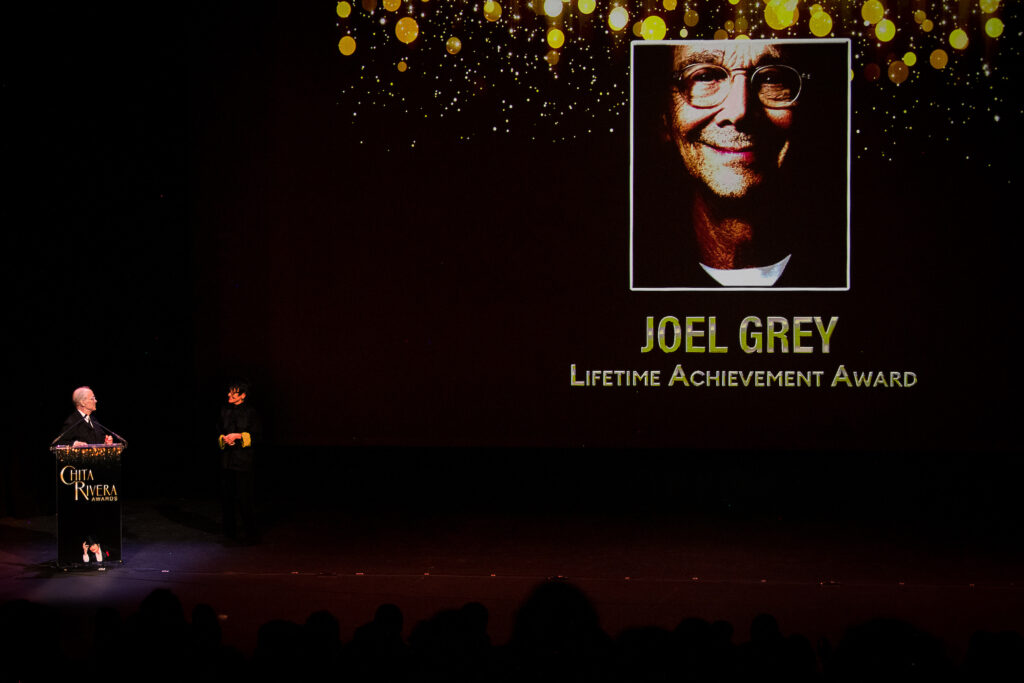
Now 90, Grey has amassed a gallery of colorful characterizations—George M! (Cohan), Wicked’s Wizard of Oz, “Mr. Cellophane” (Roxie Hart’s hubby, Amos) in Chicago, the Dauphin of France (a.k.a. Goodtime Charley), Firs in The Cherry Orchard, “Moonface” Martin of Anything Goes, Joseph Goebbels in A. Hitler, S. L. Jacobowsky of The Grand Tour, Ned Weeks in The Normal Heart and, later, its director—but, of course, the character he turned into an icon is the one he named his autobiography after: Master of Ceremonies.
That role came to him at a fortuitous time, just when he was cashing in his chips as a performer. “Well, don’t,” Prince told him. “I have a part for you in my new show.” He saw Grey do Littlechap, the white-faced clown in Stop the World—I Want to Get Off, in a small tour at the Westport Playhouse—and wanted to affect a similar look for Cabaret’s emcee.
The part came with six stellar Kander-and-Ebb ditties–but not one spoken word, an inhibition for any actor. For Grey, it was a genuine struggle to find the character. At the final rehearsal prior to departing for Boston to open the show, the actor asked Prince if he could try something “radical.” Of course, he said yes. Then, without saying anything to the company, they ran the opening song, “Willkommen,” now with Grey as an unbridled letch.
This new interpretation was based on Grey’s die-hard memory of an irredeemably bad St. Louis comic he had encountered during his days of working nightclubs. “He was so cheap, so terrible, so vulgar. He played to the audience’s worst instincts, and they loved him for it! I remember thinking, ‘He’s the worst thing I’ve ever seen.’ Then I started to think of how he was over the top and how I could incorporate that into the character of the emcee.
“The company was aghast, and the Kit-Kat Klub chorus girls were angry. I was invading their space. Everyone was staring at me like I was a madman, but I kept going. When I finished, I was mortified and hid behind the flat. I was sure it was the end of my career. Minutes later, Hal Prince—the visionary—found me, put his arm around me and said, ‘Joely, that’s it!’”
Grey’s terror didn’t subside because this meant he would have to do it all again—in front of an audience. Nobody knew how Boston would go, so there was some real surprise when “Willkommen” was thunderously well-received. “They wouldn’t stop applauding. We stopped the show at the opening. We thought, ‘Oh. Maybe we have something here.’”
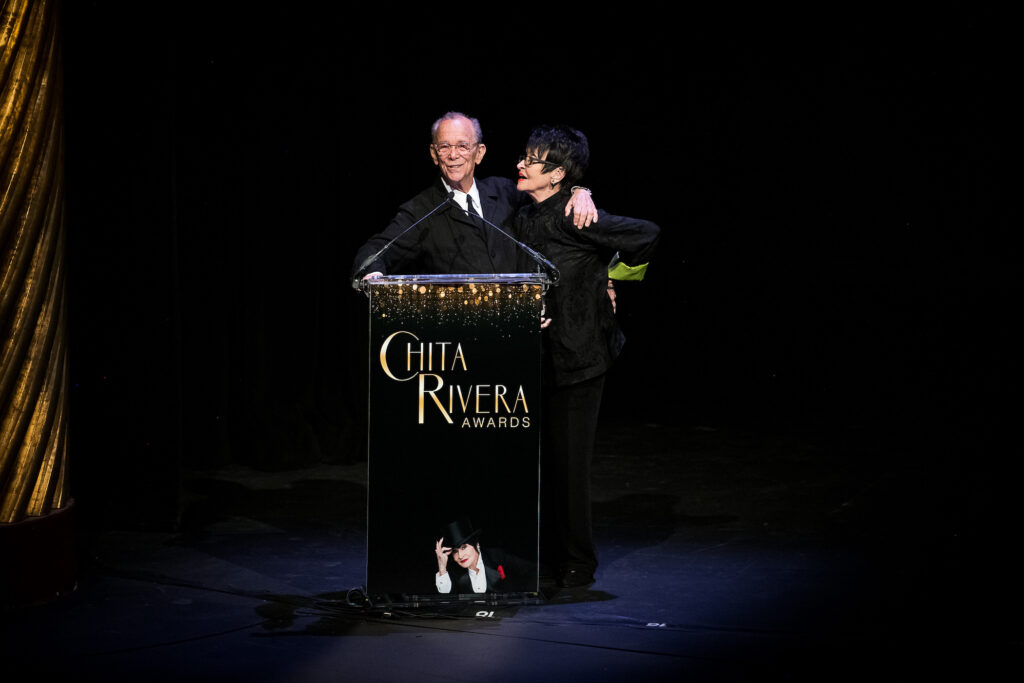
Kander and Ebb’s first choice for Cabaret’s female lead—a fifth-rate chanteuse named Sally Bowles—was their Flora the Red Menace, Liza Minnelli. They even wrote her a torrid ballad to audition with, “Maybe This Time.” Prince was reportedly blown away by it, saw nothing fifth-rate about Minnelli and gave the part to Jill Haworth, whom critic Walter Kerr found to be “a damaging presence, worth no more to the show than her weight in mascara.”
Cabaret was the second film Bob Fosse ever directed. Having proved he could direct musicals with Sweet Charity, he decided to emphasize the dramatic aspects of Cabaret. Jay Presson Allen’s new approach to the material (Christopher Isherwood’s book, Goodbye to Berlin, and John Van Druten’s play, I Am a Camera) played up Sally’s complicated affair with a bisexual Brit and eliminated the middle-aged romantic subplot (and its five songs).
Fosse also scooped up and restored Prince’s discards (Minnelli and “Maybe This Time,” which got dropped en route to Broadway). She turned in a slam-dunk Oscar performance, but the song was deemed ineligible because it had been on her “Liza! Liza!” debut album.
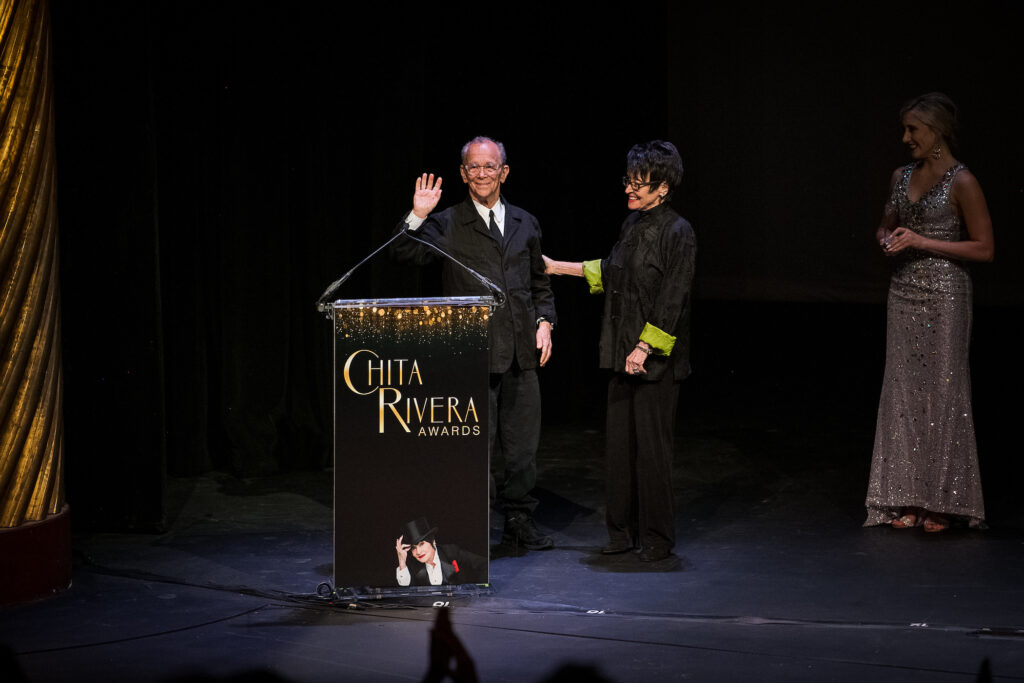
Fosse seemed to be trying to create his own success and not coast on or, in any way, repeat the Broadway show. Despite his Tony, Grey couldn’t get an audience with the director to discuss the role. The trades reported that he favored Ruth Gordon or Anthony Newley for the emcee. Eventually, Fosse had a showdown with the producers where he stated his case bluntly: “It’s either me or Joel Grey.” They said, “Well, then it’s Joel Grey.”
As it turned out, they both won Academy Awards–the hard way, Grey contending with a director who didn’t want him, and Fosse competing with Francis Ford Coppola for The Godfather. Grey is one of eight actors who won a Tony and an Oscar for the same role.
But none of it was easy for either of them. On the first day of rehearsal, Fosse told Grey he wanted him to do a backflip for the “Two Ladies” number. “There’s nothing to it,” he said and proceeded to demonstrate, falling flat on his face and laying there a full minute.
“We hadn’t begun shooting yet, and everybody stood there, thinking, ‘Well, that’s the end of the movie.’ They took him to the hospital, and the next day he showed up on the set, black eye and all, and we started shooting. He never asked me to do the backflip again.”
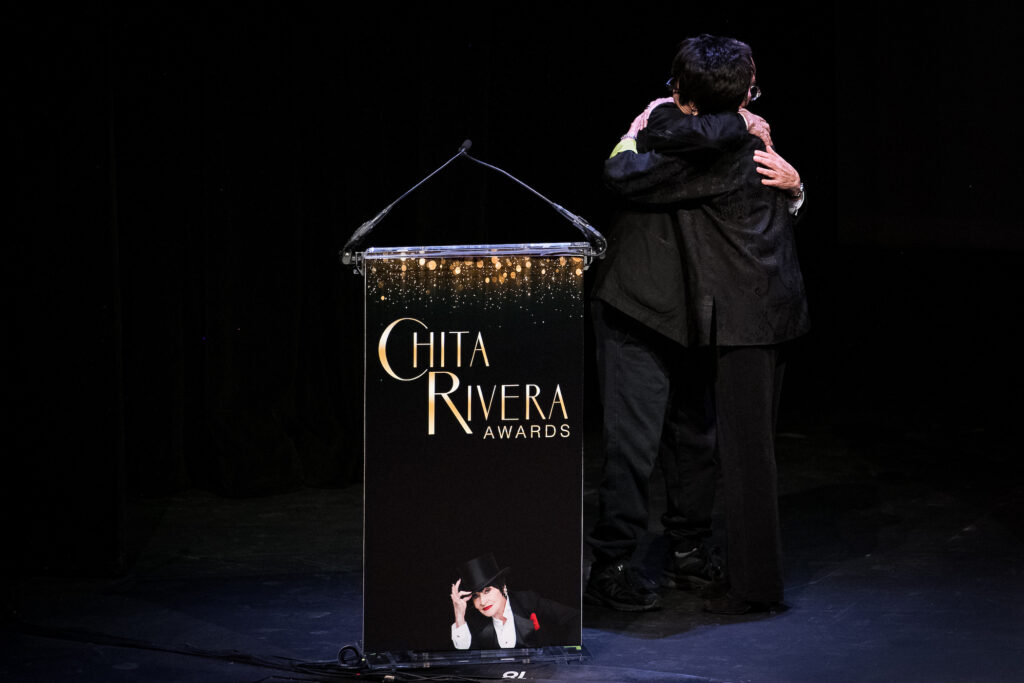
Midway through the shoot, another explosive exchange occurred. “We were working with two women in the mud-wrestling scene,” Grey recalled. “The last take was about four in the morning, and we were exhausted. Suddenly, I was inspired to dip my finger in the mud, give myself a mustache and say, ‘Heil Hitler!’ Bob was furious. He said, ‘That wasn’t in the script.’ He meant he didn’t think of it, and he read me out. Course, it ended up in the film.”
Also restored to the final print (by the producers) were “Willkommen,” “Two Ladies” and “If You Could See Her,” which had been shredded and fragmented in the director’s cut.
On July 17 and July 20, in select cinemas nationwide, Turner Classic Movies has arranged a special 50th anniversary screening of Cabaret. “How is it possible?” Grey asks incredulously.
Photo credit: Cherylynn Tsushima
Lead Photo: Chita Rivera (Kiss of the Spider Woman-Photo Martha Swope/New York Public Library) – Joel Grey


